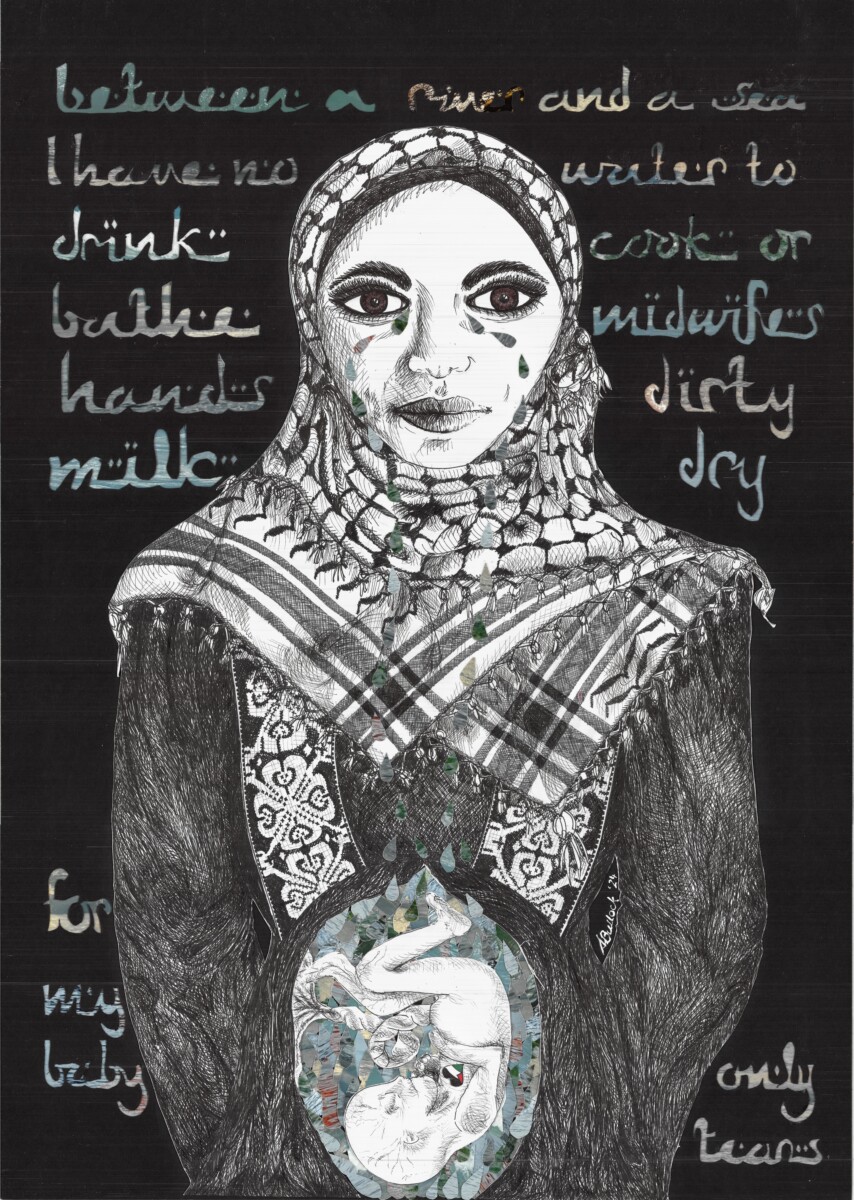For my baby, only tears
Access to safe water and sanitation is an internationally recognised human right (UN, 2010). However, it is a source of gross global inequality and an inherently political issue, guiding geopolitical strategy and a major factor in conflicts around the world (UN, 2017).
Climate change brings higher temperatures, extreme weather events and altered ecosystems; the associated water scarcity exacerbates the fragility of these complex geopolitical interplays (Salameh et al, 2021) and women’s health is disproportionally impacted (Climate + Women Nexus Report, 2018).
Annually, 16.6 million women give birth without adequate water and sanitation and unclean births lead to over a million deaths (Water Aid 2023). In Gaza in 2022, only 1% of the population had access to safe drinking water (World Bank, 2022). Since the October 2023 invasion, that water supply has been further reduced by 94% (The Lancet, 2024). Today, 60,000 pregnant women in Gaza (NPR, 2024) are confronted by sky-rocketing maternal, foetal and neonatal mortality rates, in a country whose maternal mortality rate was already double that of the UK’s (World Bank, 2020).
Alix Bullock,
Specialty Training Registrar in Obstetrics & Gynaecology, Yorkshire & The Humber

This piece brought a tear to my eye. It is both beautiful and devastatingly sad, and links so well thematically with many of the other pieces in this exhibition.
The title ‘For my baby only tears’ emphasises how the mother can only provide water from her own body for her baby due to the severe lack of sanitised water available to her. This is a problem that is rife in developing countries, contributing to the increasing mortality rates for mothers and their babies. Clean, safe drinking water should be a right, not a privilege therefore much needs to be done to ensure countries around the globe have easy access to it.
I found this piece very sad. It reminds me how lucky I am currently, and how fragile our societies and ecosystems are. It also makes me think of all the children worldwide who are being failed by those of us that are not outraged by the situation in Gaza. For some, care and treatment is as simple as enough clean water, food and a safe place to rest. Many are also projecting how water shortages are likely to be the cause of warfare in the future, which shows how environmental science becomes human and health science in practise.
Speaks to current issues of the world and is very emotional. All around the world, women’s reproductive rights are violated from improper access to menstrual products to national abortion bans.